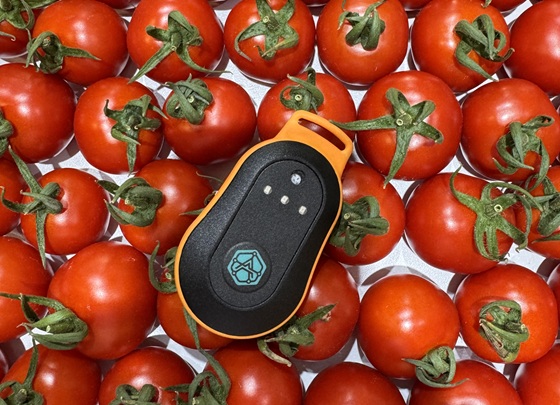A research and development initiative, supported by Defra and Innovate UK, seeks to help sustainable tomato cultivation through AI-driven monitoring technology. The project, “TomatoGuard: Advanced AI-Driven Pest and Stress Detection for Sustainable Tomato Cultivation,” focuses on early detection and management of crop stress to improve efficiency and reduce environmental impact.
The project brings together expertise from The UK Agri-Tech Centre, Altered Carbon (AC), Fargro Limited, and commercial tomato grower APS Produce. The core innovation is AC’s AI-Assisted Digital Nose, a sensor system capable of detecting volatile organic compounds (VOCs) emitted by stressed tomato plants. This graphene-based sensor array, powered by the K9sense chip, mimics human olfactory senses to identify pre-symptomatic stress indicators in plants and soil.
This early-warning system allows growers to take targeted interventions, reducing reliance on pesticides, minimizing crop losses, and optimizing resource use. Additionally, the system is expected to lower the carbon footprint of protected crop production by enabling precise environmental adjustments.
The project focuses initially on addressing Red Spider Mites (RSM), a major pest in tomato cultivation. While biological treatments are available, their effectiveness is greatly enhanced with early detection. TomatoGuard uses a combination of supervised learning for pest-specific detection and unsupervised learning for anomaly detection, demonstrating a scalable and versatile approach applicable to other crops and farming environments, including vertical farming.
Field trials are currently underway, with initial testing in controlled laboratory conditions at Rothamsted Research and additional trials scheduled at Stockbridge Technology Centre in spring 2025. APS Produce is testing the sensors in commercial glasshouses to evaluate the technology’s practical application in real-world settings.
Representatives from the project consortium highlighted the technology’s potential. Dr. Andy Evans of the UK Agri-Tech Centre noted that early detection would reduce unnecessary pesticide use and optimize crop quality and yield. Altered Carbon’s COO, Detelina Vassileva, emphasized the broader vision of reducing global food loss through digitizing the sense of smell, while Fargro Limited and APS Produce underscored the practical benefits for growers in terms of sustainability and economic viability.

